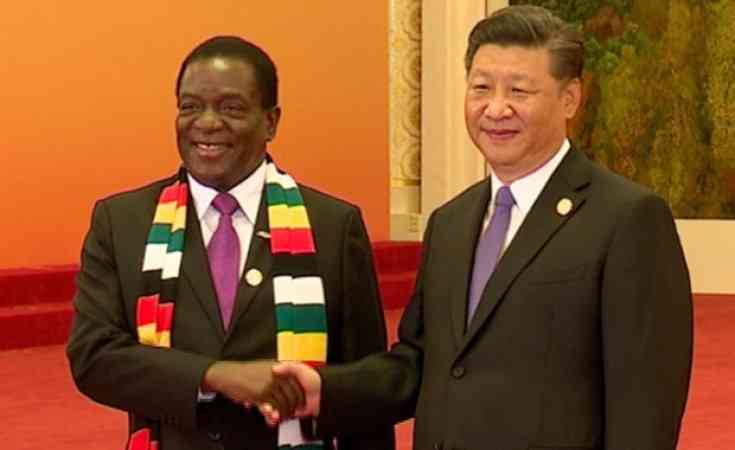
CHINA has emerged as Zimbabwe’s largest foreign direct investment (FDI) source, overtaking the West, a research conducted by the Public Policy and Research Institute of Zimbabwe (PPRIZ) has revealed.
The research findings also revealed that Chinese investors were, however, violating numerous domestic laws and labour rights as they enjoy the protection of top Zanu PF and government officials.
Presenting a paper titled: Zimbabwe mapping report: China-Zimbabwe Relations under the Zimbabwe Multi-stakeholder reference group engagement programme on Friday last week, PPRIZ Research Fellow Ronald Chipaike said many people had mixed feeling about the Chinese’s intentions in dominating investments in the country.
“The issue at hand is quite emotive, others believe that China is actually trying to colonise not only Zimbabwe but Africa; others believe that it is an all-weather friend that has actually come to help African countries to escape from neo-colonialism: For example, to escape from scourge of poverty and underdevelopment,” Chipaike said.
“China is now the biggest source of FDI. China is now also the largest source of finance for infrastructural development. The deepening relations between the two countries may have negative implications on democracy and human rights.
“Both Zanu PF and the Chinese Communist Party espouse authoritarianism as a governance strategy and civil society is playing an important role in highlighting the negative impacts of Chinese investments and other engagements in Zimbabwean communities.”
Zimbabwe-China relations date back to the liberation struggle when Zanu PF’s Zimbabwe African National Liberation Army (Zanla) was being supported by China, while PF Zapu’s Zimbabwe People’s Revolutionary Army (Zipra) enjoyed the support of the former Soviet Union.
He said at independence in 1980, China was the first country to establish diplomatic relations with Zimbabwe with the then Prime Minister Robert Mugabe sending his deputy Simon Muzenda to that country to express gratitude for its support.
- Global agency downgrades Zimbabwe’s growth projections
- Sudan Darfur crisis: ICC to try war crimes suspect
- Zim to get Malawi maize this monthend
- Global agency downgrades Zimbabwe’s growth projections
Keep Reading
“Mugabe also travelled to China several times from 1980 to 1985 and as a result he got US$85 million as grants from China. Part of the money was used to build the National Sports Stadium in Harare which was completed in 1987,” he said.
Chipaike said other projects which received funding from China included the US$500m Kariba South Hydro-electric Power Station extension which added 300 megawatts to the national grid.
China was instrumental in the rehabilitation of units 7 and 8 projects at Hwange Themal Power Station, while the Victoria Falls International Airport expansion was funded by China to the tune of US$164 million.
The Chinese also provided US$152 million for the expansion of the Robert Gabriel Mugabe International Airport with US$200 million provided for the new Parliament of Zimbabwe building in Mt Hampden among several other projects.
“The relationship needs to be managed well for Zimbabwe to derive sustainable benefits. There is a need for diversification of partners, Zimbabwe has become too much dependent on China and this is too dangerous,” he, however, noted.
“There are concerns of a mounting debt burden and inability to pay back, but China cancelled some of Zimbabwe’s debts recently which is seen as a means to enabling its dominance in [the provision of] DFI in Zimbabwe.”
Chipaike also talked about the numerous concerns raised by communities where Chinese companies are operating with workers allegedly being abused, while communities complain of pollution and environmental degradation.
Other countries where PPRIZ is conducting the multi-stakeholder reference group programme are Zambia and South Africa.
Meanwhile, PPRIZ executive director Gorden Moyo said despite numerous negatives that the China-Zimbabwe relations bring, the relations were helping in terms of infrastructural development.
“We are still learning about China and we are seeing certain trends from China that we think are exactly the same as those of the West.
“However, China is creating transformation of infrastructure which is the backbone of an economy, we need to appreciate that China’s infrastructure is fantastic, so we need to understand them,” Moyo said.









